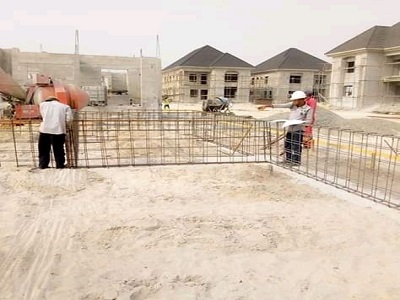SIMPLE KNOWLEDGE ABOUT QUALITY CONTROL ON CONSTRUCTION SITES

When you hear the word quality control on construction site, as an engineer your mind will quickly take you to the planning, management, statistic and engineering of the site. But over the years, we have seen that high quality projects are not the primary objective for most clients which are very bad.
It is vital that every construction project goes through quality control. This is because a good quality control ensures minimal defects and is more likely to have a successful construction project. Meanwhile, if a project does not have adequate attention when it comes to quality control on the site, it could negatively impact the project. This will also reduce the potentials for quality improvements in the projects.
Quality control makes it imperative for clients to get the most out of their construction project. This is because it takes care of the plans, specifications and some permits that are indispensable during the construction of the project.
Procedure for quality control on site
Engineers overtime find it difficult to manage a site. So it is advisable that a quality control engineer be assign to the engineer. The quality control engineer is to monitor the site in such a way that there will be an integrated QA/QC relationship. This QA/QC relationship is use to create a workflow where issues are systematically reduce. This will help save the project time and significant amount of money.
It is important to have a plan for every process on this site. Meanwhile, to better understand this process, the following steps should be considered;
- Listen to the client’s needs: It is important that the engineer or quality engineer listen carefully to the clients and try to rephrase their idea as to ensure their needs are fully understood.
- Decide on the type of materials used: Determining the materials to be use will help you know if they meet the standard of the structure. It will also help you create a workflow of how each material will be use and at what particular time and place during the construction phase. Meanwhile all of these details are necessary to ensure that the chosen materials match the quality and design needs for the project.
- Consider the surrounding factor: This factor is keys as it makes you know the soil and if it must undergo several test so as to check for climate conditions.
- Make a plan: After the materials are known, a plan should be develop to clearly outline the workflow. During the planning stage, every process should be documented for future reference.
- Test the materials: Testing the materials before using them is vital. This should be done through either third parties or internal laboratories test of the chosen materials. Meanwhile issue such as steel tensile strength or the compression strength of bricks is tested. The test of the materials will make the engineer feel safe and also know that he/she will be delivering a quality material to the site.
- Visit the site: The quality control engineer should visit the site and see what work was recently finish and what work is underway. Meanwhile, this will help make you arrange your agenda and assessment of the site. It is also very vital that a list of all the tasks is made from your last visit and those in progress now. This will help the engineer use his or her time wisely while focusing on the most critical or risky areas on the site.
- Check for complete work: This aspect should include the survey of the areas, verify if the work done meets specification and also look at more important details that could possible cost the project more fund in the future.
- Monitoring the site: This will allow you to know where an issue has arisen in the past so as to tackle them before it creates larger challenges. It also makes you to prevent repeating mistakes, helps you find and fix it immediately.
- Always review materials controls: Often times we see unapproved materials get mix with those once ready to be use for work. Therefore it is vital that every material been check before use. One of the ways to solving problem like this is to have tag placed on inspected materials. This will help differentiate it from the uninspected materials.
Why is quality control important on construction sites?
Nowadays, most clients feel it is not important to undergo this process. Meanwhile, little did they know that it is very economical and can save the project a lot of funds. So I will just list a few important factors of why quality control is vital on site.
- It helps you gather more information about the challenges facing the project in a short period of time.
- It also helps the project to comply with regulatory standards.
- Helps in cost reduction.
- It also helps you avoid accidents on construction sites
- It also helps you plans inspections and assigned responsibilities ahead of time whereby reducing the workload in the project.
Quality control is vital in every construction process especially when on site. Therefore engineers and clients should always put it as one of the focal point during the construction stage.


